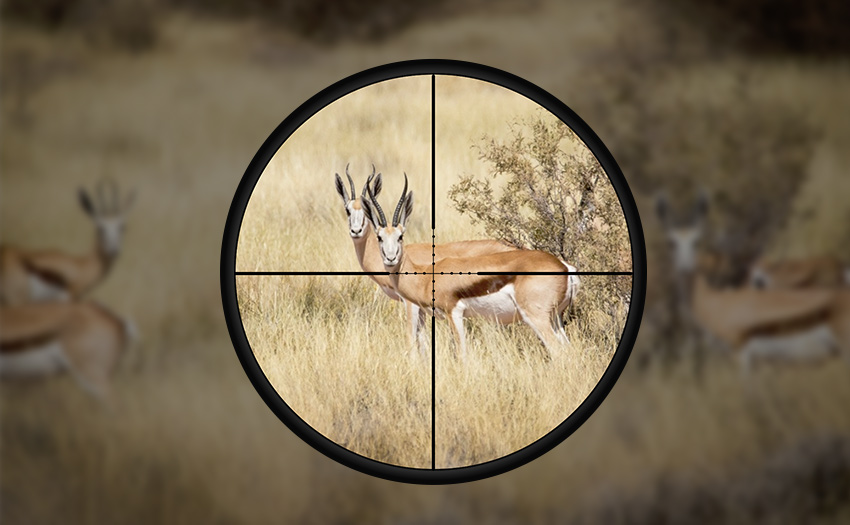Blog
Table of Contents

What is Mil-dot Stadiametric?
Mil-Dot Stadiametric rangefinding often uses the milliradian ("mil" or "mrad") as the unit of angular measurement.
Derivation of the Mil-Dot Stadiametric
In general the same unit can be used for subtension and range if multiplied with a factor of thousand, i.e.

If using the imperial units yards for distance and inches for target size, one has to multiply by a factor of 1000⁄36 ≈ 27.78, since there are 36 inches in one yard.
1mil indicates the distance from the bottom to the bottom of the Mil-dot, and the distance from the center to the center of the Mil-dot.
The Mil-dot is 0.2 mil, and the change that this point can cause at a great distance is very large.
The difference between 1.4mils and 1.5mils is much greater than the difference between 5.4mils and 5.5mils.

Practice More on Your Device to Figure Out What the Secret Bit is.
The closer we are to the target, the bigger the mil bit looks, which is proportional to the relationship.
If the target is close to double, and half of the distance is left, the target will look double.
X Sights Scope & Mil-Dot Stadiametric
We know that sights are divided into FFP sights and SFP sights, so what is the connection between them?
The FFP sight refers to the reticle at the first focal plane. When you adjust the magnification of the sight, the reticle changes with the magnification. The picture itself will become larger or smaller. Aiming at the target does not move, you calculate the target distance at any magnification is the same.
The SFP sight refers to the reticle at the second focal plane. When you adjust the magnification of the sight, the reticle will not change with the magnification. The picture itself will become larger or smaller. This poses a problem, Aiming at the target does not move, you calculate the target distance at any magnification is different.
Then the FFP Sight Scope is more accurate than the target distance calculated by the SFP Sight Scope.
Why Calculate the Target Distance?
Let's take this phenomenon to the hunting environment and take a look.
First we know how far the animal is from us, then we know how to adjust the sight at this distance.
Assuming that an animal's shoulder width is 1 yard and the shoulder width occupy 4 Mil-Dot. We can calculate that the animal is 250 yards away from us.
If this is a suitable shooting distance and the environment is suitable, then we can fire on it. Then we calculate the wind deviation and the impact point according to the distance, and we can shoot accurately.
You can also stay close to the animals all the time, the bigger and bigger the animals are, the closer they are to you. Look at how many Mills amount it occupies in the sight to judge the distance and choose the proper shooting distance.
If you have any questions, you are welcome to send us an email: vip@svbony.com. Thank you very much for reading.


Guest
katana